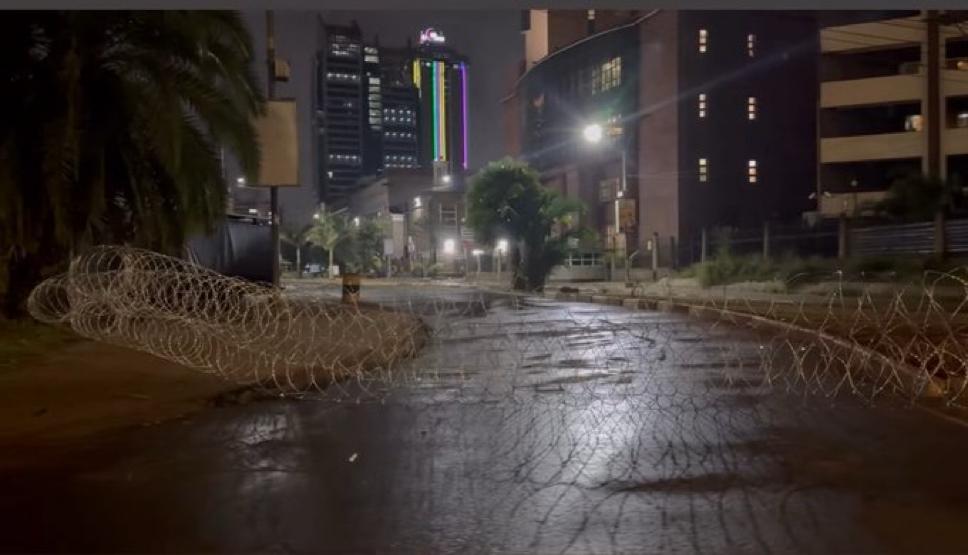

The High Court has issued conservatory orders restraining Inspector General of Police Douglas Kanja from erecting roadblocks, barricades, or barbed wire within the Nairobi Central Business District (CBD) during peaceful demonstrations.
Justice Lawrence Mugambi made the ruling in response to a petition filed by Katiba Institute, which argued that the National Police Service was unlawfully restricting constitutional rights by blocking roads and limiting access to the CBD without notice.
The court found the actions by the police amounted to an unjustified limitation of rights to peaceful assembly and freedom of movement.
"Pending the hearing of the application, a conservatory order is hereby issued requiring the 1st Respondent, the Inspector General of the National Police Service, or any officer under his command, to remove the barbed wires, barricades, and police blocks that are preventing citizens from accessing the Central Business District and its streets, except for reasonable and limited perimeters around protected areas,” Justice Mugambi ruled on Wednesday.
In its petition, Katiba Institute argued that recent actions by the police, including blocking access to Nairobi’s streets on protest days, were a violation of Articles 37 and 39 of the Constitution, which protect the rights to assemble and to move freely.
The institute said these measures were imposed without proper notice or legal justification, and in defiance of previous court rulings that upheld the right to protest.
The petition detailed how Kenyans had been attempting to exercise their right to protest peacefully over issues, citing the Finance Bill 2024 and recent protests, only to be met with excessive police presence, road closures, and physical barricades, including barbed wire.
Katiba Institute warned that such trends risked turning Kenya into a “police barbed-wire state,” reminiscent of past eras when public dissent was suppressed.
"It is in the public interest that people be allowed to exercise their right to demonstrate peacefully and unarmed, and that the police serve the people who assemble by protecting them and not using excessive force against them," Katiba Institute, represented by lawyer Joshua Malidzo Nyawa, argued.
"It is equally in the public interest that the public be allowed to move around Nairobi. If such a right is to be limited, the limitation must follow due process and not see the public waking up to streets blocked by barbed wire."












